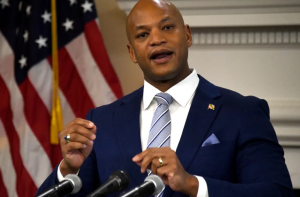As the 2024 legislative session gains momentum, Governor Wes Moore has unveiled a groundbreaking piece of legislation on Monday, targeting the pervasive issue of generational wealth disparities and childhood poverty. Presented on behalf of his administration, the ENOUGH (Engaging Neighborhoods, Organizations, Unions, Governments, and Households) Act of 2024 is poised to create a transformative grant program. This program, integrating public funding with contributions from the private sector and philanthropies, aims to channel resources into Maryland’s rural, suburban, and urban communities grappling with the highest rates of generational poverty. The overarching goal is to metamorphose these communities into safer environments with burgeoning economic opportunities.

Governor Moore, a Democrat, shared his vision for ENOUGH during a press conference at LIFE Church Ministries in Brooklyn, emphasizing its significance in combating poverty, crime, and systemic issues that have persisted unaddressed for generations. The legislation underscores a commitment to tackle concentrated poverty and represents a pioneering approach from a state government.
Under the provisions of the bill, community leaders will craft proposals, and accepted projects will receive funding from a combination of public and private sources, facilitated by the recently established Governor’s Office for Children. The state is set to provide an initial grant funding of $15 million for the first year, characterized by Governor Moore as a vital initial step in the broader fight against concentrated poverty.
Governor Moore underscored the belief that those closest to the challenges are best positioned to devise solutions. The legislation seeks to empower state and local governments to include community leaders in decision-making processes, recognizing the unique problems each community faces.
This legislative initiative is Governor Moore’s continuation of his commitment to address child poverty, a pledge made during his campaign. Prior to his political career, Moore served as the CEO of Robin Hood, a New York City-based nonprofit dedicated to fighting poverty. Reflecting on his time at Robin Hood, Moore dismissed the notion that poverty is an individual’s choice, asserting that it is a consequence of broader policy and legislative decisions.
Emphasizing the need for a strategic approach, Moore pointed to historical examples where substantial philanthropic funding failed to yield positive outcomes due to a lack of a cohesive strategy. Drawing attention to Sandtown-Winchester, Moore highlighted how significant funds poured into the community during the 1990s and after Freddie Gray’s death in 2015 did not lead to a reduction in the poverty rate, reinforcing the importance of a well-devised strategy.
